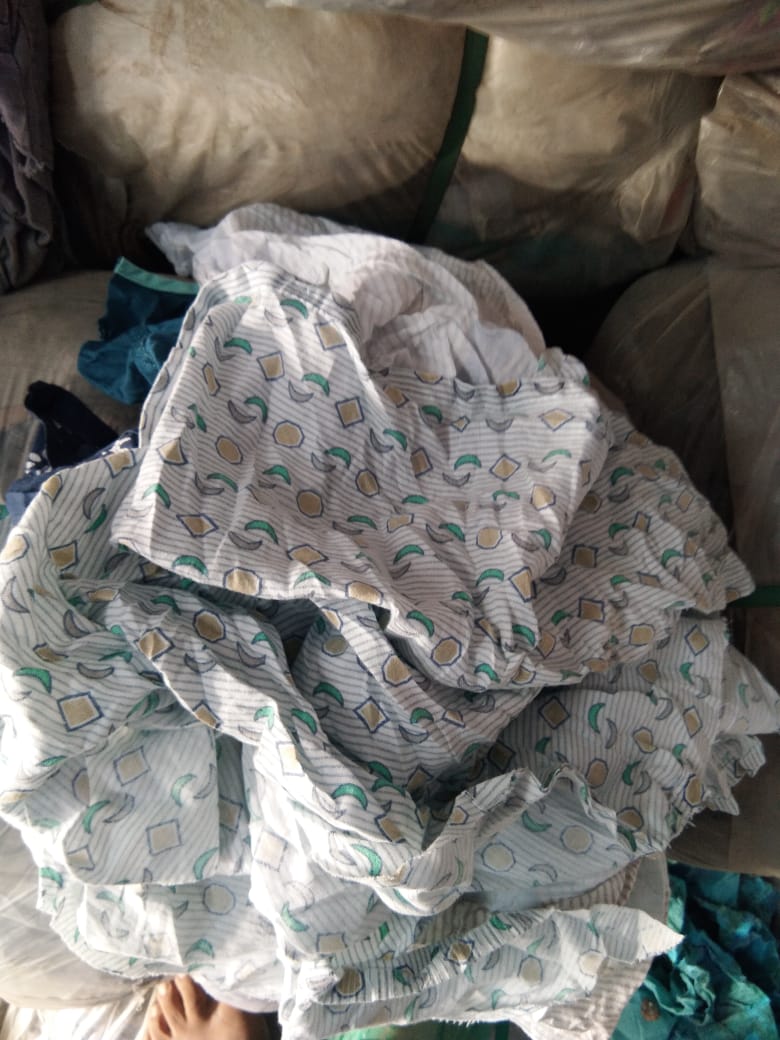In the bustling city of Surat, known for its vibrant textile industry, Rajesh Patel faced a pressing challenge. As the owner of a mid-sized garment factory, he was grappling with the mounting issue of cotton waste. Every week, heaps of cotton scraps accumulated in his facility, leading to storage woes and escalating disposal costs. Moreover, the environmental impact of discarding such waste was a constant source of anxiety for him. Rajesh needed a solution that was not just practical, but also aligned with sustainable business practices.
Enter the innovation of light cotton waste, a beacon of hope for businesses like Rajesh's. This byproduct of the textile industry, often overlooked, holds the potential to transform both small and large-scale operations. But what is it about light cotton waste that makes it so valuable? Let's explore this through Rajesh's journey.
Rajesh's Dilemma and the Promise of Cotton Waste
Rajesh's business, while profitable, was marred by the constant need to manage waste effectively. The problem was not just logistical but also emotional. The thought of contributing to environmental degradation weighed heavily on him. He needed a way to turn this challenge into an opportunity, both to ease his conscience and to enhance his business's sustainability credentials.
Light cotton waste emerged as a versatile resource. It is essentially the byproduct of cotton processing, comprising soft, fibrous material left over after the primary production processes. What makes it particularly appealing is its potential for reuse and recycling, offering a sustainable solution for industries burdened by waste.
Transforming Waste into Wealth
Inspired by a seminar on sustainable practices, Rajesh decided to take action. He began integrating light cotton waste into his production line, using it to create eco-friendly packaging materials. This not only reduced his waste disposal costs but also opened up a new revenue stream. By marketing these sustainable packaging solutions, Rajesh not only mitigated his waste problem but also tapped into a growing market of environmentally conscious consumers.
The positive changes didn't stop there. Rajesh's initiative caught the attention of local media, earning his business accolades for its commitment to sustainability. The increased visibility led to new partnerships and an expanded customer base. Rajesh's story is a testament to how embracing sustainable practices can lead to unexpected opportunities and growth.
The Broader Impact on the Community
Rajesh's success with light cotton waste inspired others in the community. Neighboring factories began to explore similar approaches, creating a ripple effect that significantly reduced the overall waste output of the area's textile industry. This collective effort not only benefited the businesses financially but also contributed to a cleaner, greener Surat.
Moreover, by choosing to invest in sustainable practices, these businesses also played a part in preserving the environment for future generations. It highlighted the importance of responsible business practices in an era of increasing environmental awareness.
The Takeaway for Business Owners
The story of Rajesh Patel is a powerful reminder of the potential that lies in challenges. For business owners across India, particularly those in the textile sector, light cotton waste offers a practical solution to a pressing problem. It addresses not only the logistical and financial aspects of waste management but also resonates emotionally by aligning business practices with the principles of sustainability.
Incorporating light cotton waste into your business model can lead to cost savings, new revenue opportunities, and enhanced brand reputation. It's a chance to make a meaningful impact, both within your industry and the wider community.
As Rajesh's story demonstrates, with innovation and a commitment to sustainability, even the most daunting challenges can be transformed into opportunities for growth and positive change. Embrace the potential of light cotton waste, and take the first step toward a more sustainable future for your business and our planet.
Visit Vyaparify Site:
https://id.vyaparify.com/sharda-enterpriseLocation:
https://www.google.com/maps/place/Sharda+Enterprise/@22.9588106,72.6488951,17z/data=!3m1!4b1!4m6!3m5!1s0x395e89d48f9579cb:0xb919d953e31add88!8m2!3d22.9588057!4d72.65147!16s%2Fg%2F11s8wxxwmg?entry=ttu 
